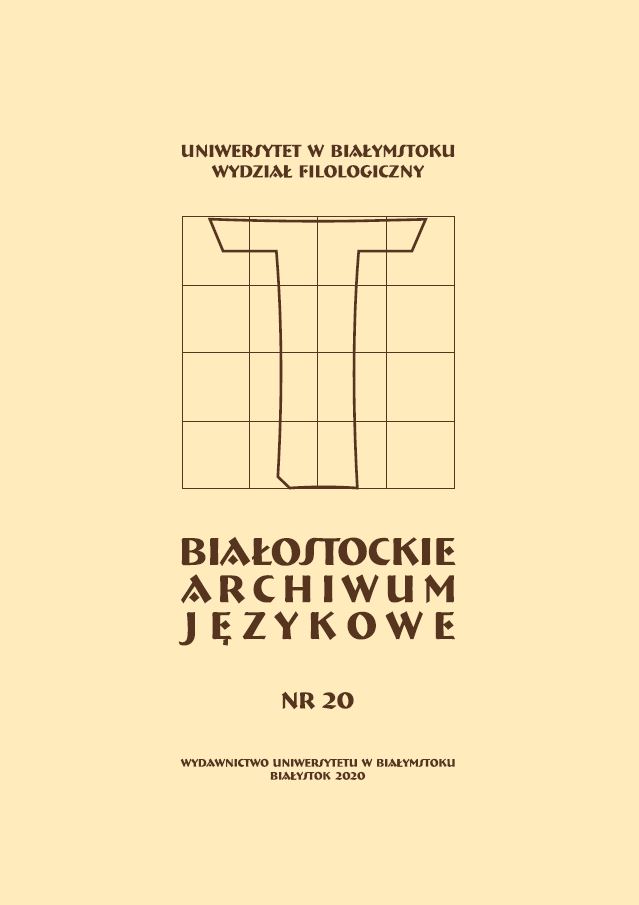Leksem drabant (Act 23,23) w Nowym Testamencie Biblii gdańskiej (1632) w przekładzie Daniela Mikołajewskiego
Lexeme drabant (Act 23,23) in the New Testament, Biblia gdańska (1632), translated by Daniel Mikołajewski
Author(s): Tomasz LisowskiSubject(s): Language and Literature Studies, Theoretical Linguistics
Published by: Wydawnictwo Uniwersytetu w Białymstoku
Keywords: Bible translations to the Polish language; Biblia gdańska; lexis of the 16th century; military vocabulary; cultural; religious associations
Summary/Abstract: In a verse of Act 23,23 in Biblia gdańska (1632) translated by Daniel Mikołajewski, an equivalent of Greek lexeme δεξιόλαβος ‘probably a spearman or slinger’, the noun drabant is used, which is unique, compared to its counterpart – oszczepnik – in Biblia translated by JakubWujek (1599). It may have been borrowed from the Czech language in the second half of the 16th century. In the Polish language of the time it was not a very widespread lexeme, maybe of erudite nature. It appeared in the text of Biblia gdańska taken from the Czech Biblia kralicka. Among Protestants at that time, as a military term, it could have evoked associations with the religious Hussite Wars. The lexeme drabant survived in the biblical text of the Evangelist circles until the second half of the twentieth century. Given the fact that in that century it was already an archaic word, it was not used in new testament translations which followed the translational tradition of Biblia gdańska. And probably it became fixed in the consciousness of the faithful of Evangelist churches as a memorable reminder of the past. For centuries that lexeme, along with other lexemes characteristic of Biblia gdańska caused lexical distinctiveness of that Evangelist translation compared to the Catholic translation by Jakub Wujek.
Journal: Białostockie Archiwum Językowe
- Issue Year: 2020
- Issue No: 20
- Page Range: 135-151
- Page Count: 17
- Language: Polish

